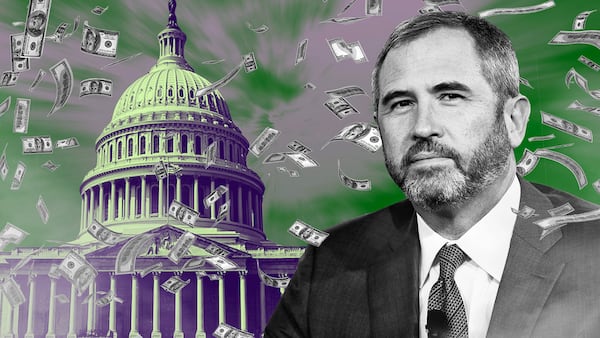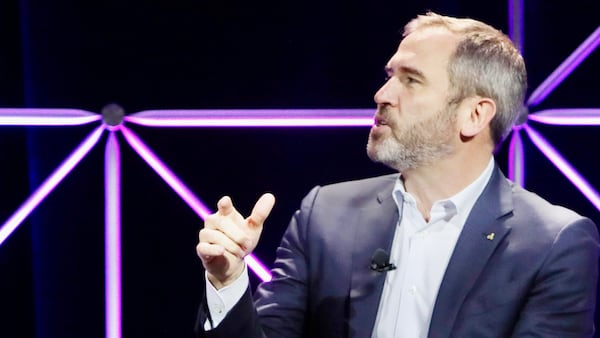- A judge denied the SEC’s appeal on Tuesday.
- Ripple and the SEC will still go to court to argue whether institutional sales constituted a securities offering.
Happy Hump Day!
Crypto investors were buoyed on Tuesday as the US Securities and Exchange Commission’s appeal in its case against Ripple was denied. The judge said that sales of the Ripple-affiliated XRP token on exchanges doesn’t constitute an investment contract.
Let’s get into it!
Trial set and match
This summer, Ripple’s partial win over the SEC caused celebrations to erupt across the crypto community.
Now, Judge Analisa Torres in the Southern District of New York has cemented the win by denying the regulator’s motion for leave to appeal.
However, that does not mean the end of the longstanding battle between the two — a trial date has been set for April 23, 2024 for the remaining matters to be settled in court.
The XRP token popped following the news of Torres denying the SEC’s appeal.
It is up 5% over the past day to $0.53, bringing its gains over the last seven days to 7.3%. XRP is the token Ripple uses to facilitate transactions on its network.
The regulator sued Ripple in 2020, accusing the company of running an unregistered securities offering.
Programmatic sales, which constitute sales of XRP to the general public through exchanges or via trading algorithms, don’t constitute investment contracts, Torres reiterated in her decision.
Consider a buyer, who spots a dramatic increase in the price of XRP while browsing an exchange, but is unaware of Ripple’s existence, Torres said.
If that buyer then purchases XRP from the exchange with the intention of later selling XRP for a profit, “she would have purchased XRP ‘with an expectation of profit,’ but that motive was not ‘derived from the entrepreneurial or managerial efforts of others,’ as required under the Howey test.”
The SEC uses the Howey test to evaluate whether or not something is a security. It consists of several prongs to determine this.
- The investment of money
- A common enterprise,
- Reasonable expectation of profits derived from the efforts of other.
Ripple CEO Brad Garlinghouse, and its executive chairman Chris Larsen will be the focal point of the trial. The pair are liable in illegal securities sales to institutional investors — in relation to the sale of millions of dollars of XRP.
Institutional investors who purchased XRP could reasonably expect profits from investing in the common enterprise.
Crypto market movers
- Bitcoin traded around $27,600, up just about 0.2% over the last 24 hours.
- Ethereum fell 0.6% to $1,650.
- Altcoins dropped overnight. Solana’s SOL and Cardano’s ADA fell 2.7% and 1.4%, respectively.
What we’re reading
- Binance CEO’s ‘vendetta’ hurt FTX traders, new class action lawsuit claims — DL News
- Exclusive: Tezos Foundation-backed Trilitech hires former Bank of America trader as DeFi chief — DL News
Adam Morgan McCarthy is DL News’ London-based Markets Correspondent. Got a tip? Reach out at adam@dlnews.com.



